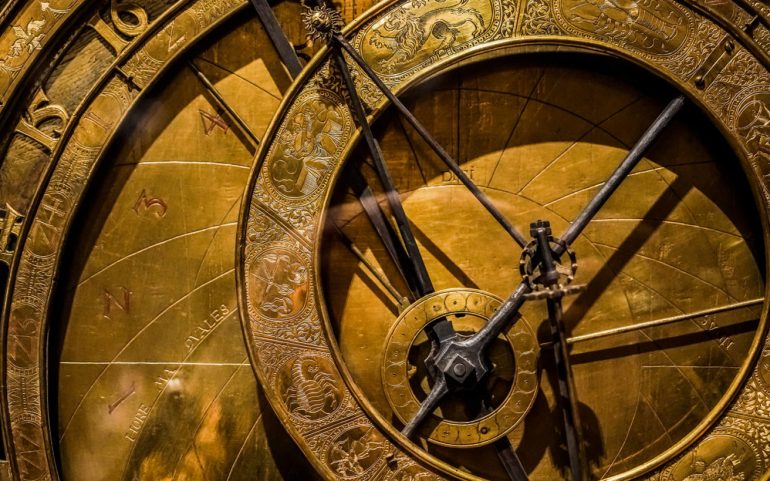There were times when the Greeks were the first to do it and did it better.
The cradle of Western civilization and the birthplace of democracy has indeed shown few paths for man to walk with determination and logic.
After establishing the right word as a way of seeing things, enchanting nature and the world, they set their sights on other great and unprecedented things. Things that said science, geometry, philosophy, democracy, theater, Olympic ideal and such colossal conceptual constructions, boulders of thought that remain unsurpassed in whatever way you judge.
Despite the fact that today they are mentioned for their cataclysmic contribution to the spiritual culture, the Greeks also had an appeal to the technical things, practical as they were human. So when they were not looking at the stars wanting to know how the Universe works or were not involved in another democratic sabotage, our ancestors scammed inventions with the sack.
And the truth is that there is no practical end here! The ancient Greeks experimented with everything and even had automations in their service. And flying machines! Only here we will not talk about everything outrageous and crazy they ever thought, but about Greek contributions to engineering and technology which were generalized to the universe and eventually became the property of all mankind.
And they are still used today, either as part of our daily lives or as contributions to individual professional sectors.
The homeland of scientific thought and philosophical pursuits was also a cauldron of technical ideas that are usually passed down in detail in relation to the other, the great and great, the insurmountable…
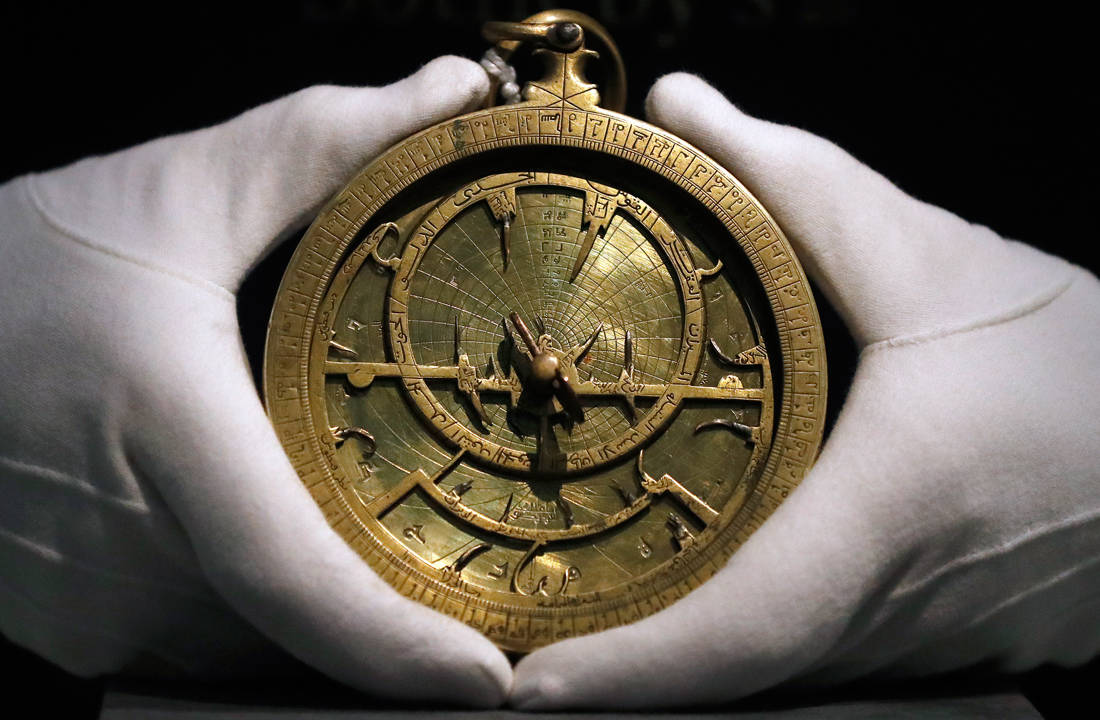
The Greeks called him an astrolabe and forced the rest of the planet to call him that. Extremely Greek, it was a real astronomical multi-machine that depicted the celestial sphere and was used as a compass for the things of both heaven and Earth.
The GPS of the Greeks from the 3rd century BC. It was even used by every astronomer and navy until the 18th century, until it was eventually replaced by the even more advanced six, which of course took over 2.000 years to overcome the astrolabe. Our ancestors even had several variations of the mythical dimensions of an instrument in their hands.
The leading Alexandrian mathematician Apollonius Pergaios is considered the inventor of the astrolabe as early as 220 BC, while both Ptolemy and Hipparchus Nicaeus (spherical astrolabe), the father of trigonometry, scrambled their own versions.
This astrolabe was taken centuries later by the Greeks Arabs, leveled it and spread it back to Europe as one of the integral instruments of navigation and astronomy.
And one more thing: when the Antikythera Mechanism was discovered at the beginning of the 20th century, everyone admitted that the Greeks had in their hands even more advanced computer instruments than the astrolabe. If this was the GPS of antiquity, the Mechanism was the first computer in human history…
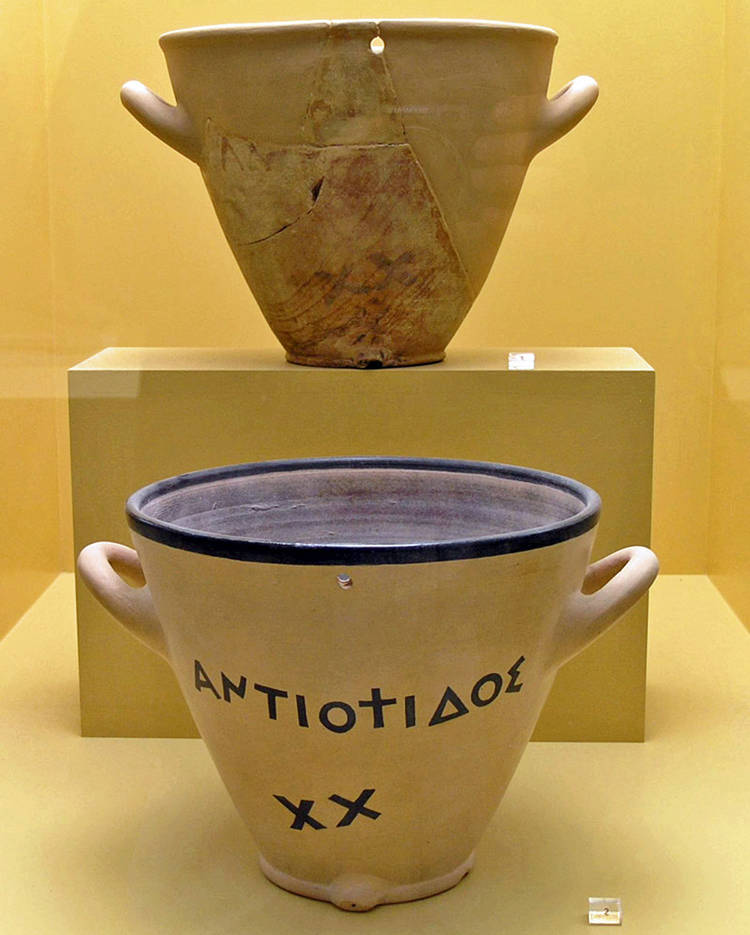
Today the measurement of time is considered a given. However, there were times when you had to look at the sun to see what time it was. Unless you were Greek. And you discovered the water-clock. Despite the fact that archaeologists dispute whether it was a Greek or Egyptian invention, as one was found in his tomb Pharaoh Amenofi A ', our ancestors experimented a lot with water clocks called hourglasses.
The Greeks actually used them in their daily life at least from 325 BC. They even existed in the Athenian courts, so that each party would know when his speaking time was coming to an end. When he heard this "water is coming out", he knew he had to shut his mouth. Even in the speeches of politicians they used it, so as not to pull for a long time.
There was the analog clay hourglass and the parabolic hourglass, which allowed even equal intervals to be measured. And of course Athens was the city that had its own Ben Big Ben as early as the 1st century BC. The Tower of the Winds (Clock of Kyrristos), the work of the mathematician and astronomer Andronikos of Kyrristis, which still stands in the Roman Forum in Plaka and you could see the time even at night…
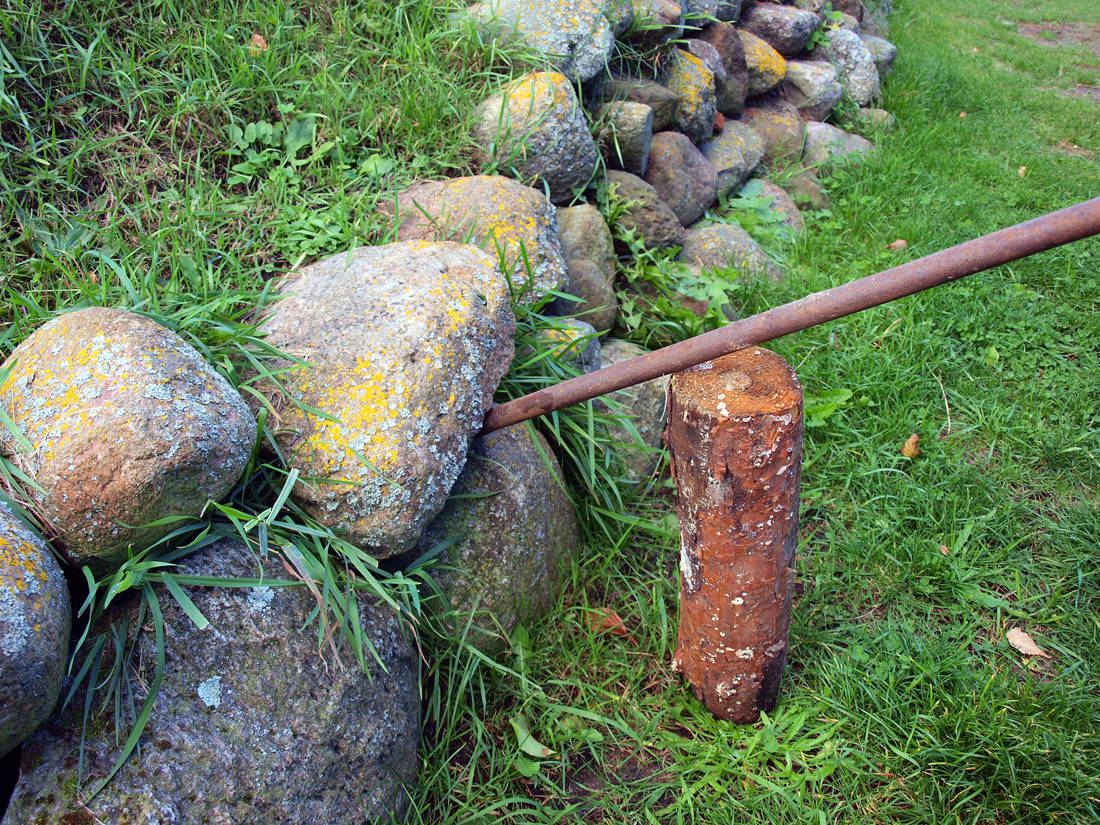
No one claims that the Greeks were the first people in history to think of putting wood on a stone by turning it into a lever. They were simply the first to theorize the practical invention, finding the relevant equations and centers of gravity and thus making it infinitely more efficient.
A lever is a rigid object that can rotate around an axis (lever) and in combination with it can multiply the force exerted on another object, so Archimedes defined the lever, so even today physics defines it.
Archimedes was the first to explain the law of levers and formulate the balance of weights. According to the legend, in fact, excited to discover the possibilities of the lever, he exclaimed happily: "Give me a point to stand and I will move the earth!".
It was 260 BC. when the 27-year-old Archimedes would see some little ones playing on the beach with a board and he was inspired to interpret a colossal law of engineering. After explaining the beginning of the levers, he recruited them, now scientifically, in everything. Taking then the praise for the impressive and harmonious buildings erected by the ancient Greeks. Without the levers of Syracuse, which would lead to the following contribution, the Greek architecture would be completely different…
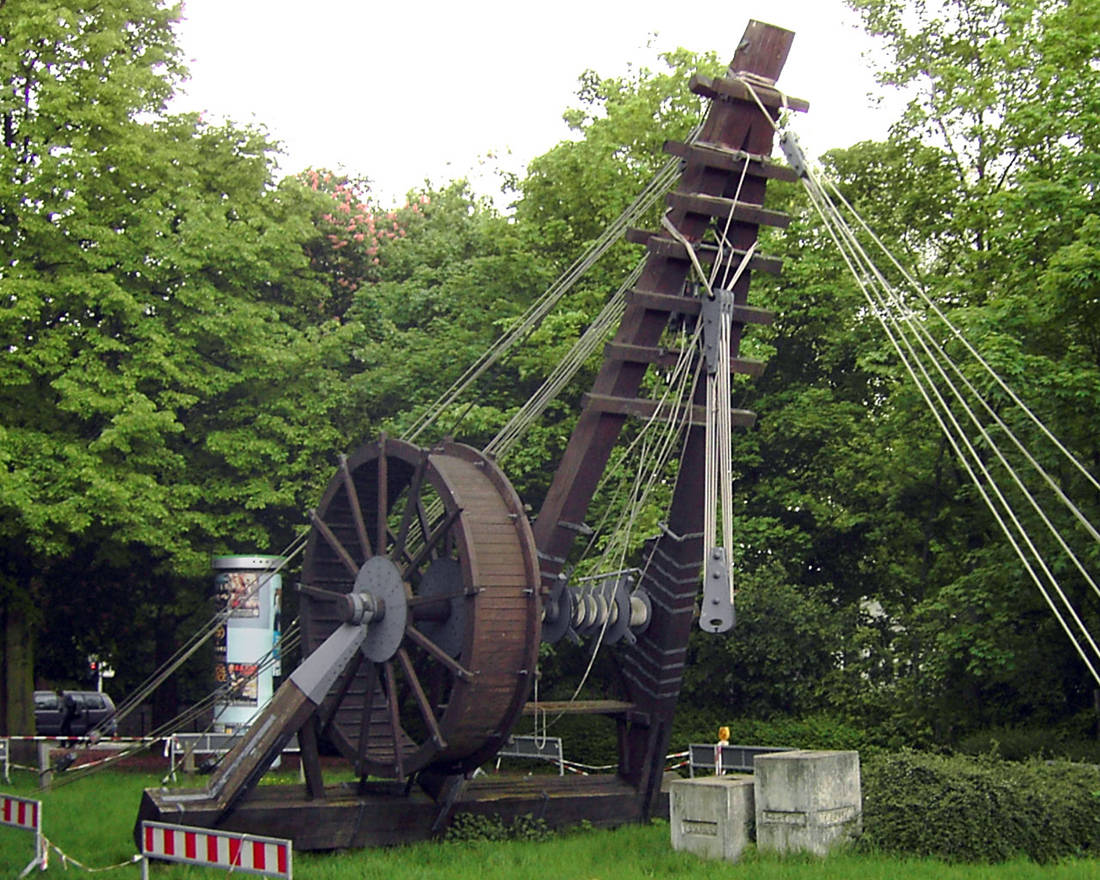
If you took a walk through Athens in the 6th century BC, you would see it as a proper construction site, with cranes rising above the buildings, speeding up construction time. Our ancestors used to call it Varoulko, themselves inventors of the crane. The signs of the use of lifting machines on temple stones even of 515 BC. leave no room for doubt as to how they climbed there.
The Greeks already had pulleys and levers in their hands, so they replaced ramps and heavy manual labor with the new invention that seemed like the next logical step. Within the next 200 years, Greek architecture would become more and more refined, as the vertical movement allowed for more refined manipulations.
Where the aristocratic societies of Egypt recruited hordes of slaves on the ramps, the Greek city-states needed only a small and specialized team of technicians. Aristotle describes cranes, Archimedes also made innovative cranes, allowing him to launch entire ships with one hand (described by Heron).
With such a crane (stone crane or "iron hand") Archimedes destroyed the Roman ships during the siege of Syracuse. A manual winch that allowed the pilot to release huge loads over the enemy ships approaching the walls, sending them to the bottom…

The watermill is something like a wheel, difficult to find out who discovered it. But at a time when archaeologists are debating whether the Egyptians, Persians, Indians or Greeks were the inspirers of an invention that would change the world, there is good evidence that it was first used in the Greek world. Asia Minor around the 4th-3rd century BC.
Our ancestors called it Hydraleti and it was a hydraulic cereal mill, like the one used until today. The geographer Strabo tells us that he was first recruited by Mithridates VI Eupator, who was known for his Greek studies.
The oldest that has been found is also located in Perachora of Corinth and dates back to the 3rd century BC, at the same time that the traces of watermills in Greek territory exceed 20.000. The engineers of the Hellenistic world knew the watermill well, as the Romans Vitruvius and Pliny the Elder testify, and the great friend Byzantium tells us in his "Pneumatics" that he had built an even more efficient mill with the help of water.
Some historians now place the birth of the watermill in the Greek colony of Byzantium during the first half of the 3rd century BC. If it was not Greek-inspired, it was ultimately the Greek watermill with the horizontal impeller that prevailed and was used all over the world…

The sophisticated siege technology of the ancient Greeks would undoubtedly need a separate theme, as here our ancestors wrote poems. Of course, nothing gained the reputation of the catapult, a very Greek invention that has not been here historically and archaeologically but also me.
Hero Alexandreus describes in his "Velopika" the multitude of Greek ballistic weapons and the list here is inexhaustible: gastrafetis (the oldest catapult), sharp catapult, stone catapult, direct catapult, scorpion cat, scorpion their!
The Greek catapult initially fired arrows at longer distances (crossbow), before passing to the spears and stones finally. It was invented in Sicily around 399 BC, when the tyrant of Syracuse Dionysios the Elder called Greek engineers to build a war machine for his campaign against Carthage.
And they had him ready on time for the sudden attack of the Carthaginians in Syracuse, when the enemy fled from those arrows that came and found him from everywhere. The king of Sparta, Archidamus, was also left speechless during a demonstration of the catapult brought to him from Sicily, literally stunned.
As for the first large stone catapult in human history, this was the Catapult of Philo, the work of the great engineer Diad of Pellaio, who was in the work of Alexander the Great and was magnificently called "the Siege"! It was the first military device to fire missiles at long distances.
The teacher of Diadis, the famous Polydeidos of Thessaly, was the military engineer who made for Philip the terrible ellipolis, the covered siege ram that gave the Macedonian king Byzantium on the plate (341 BC)…
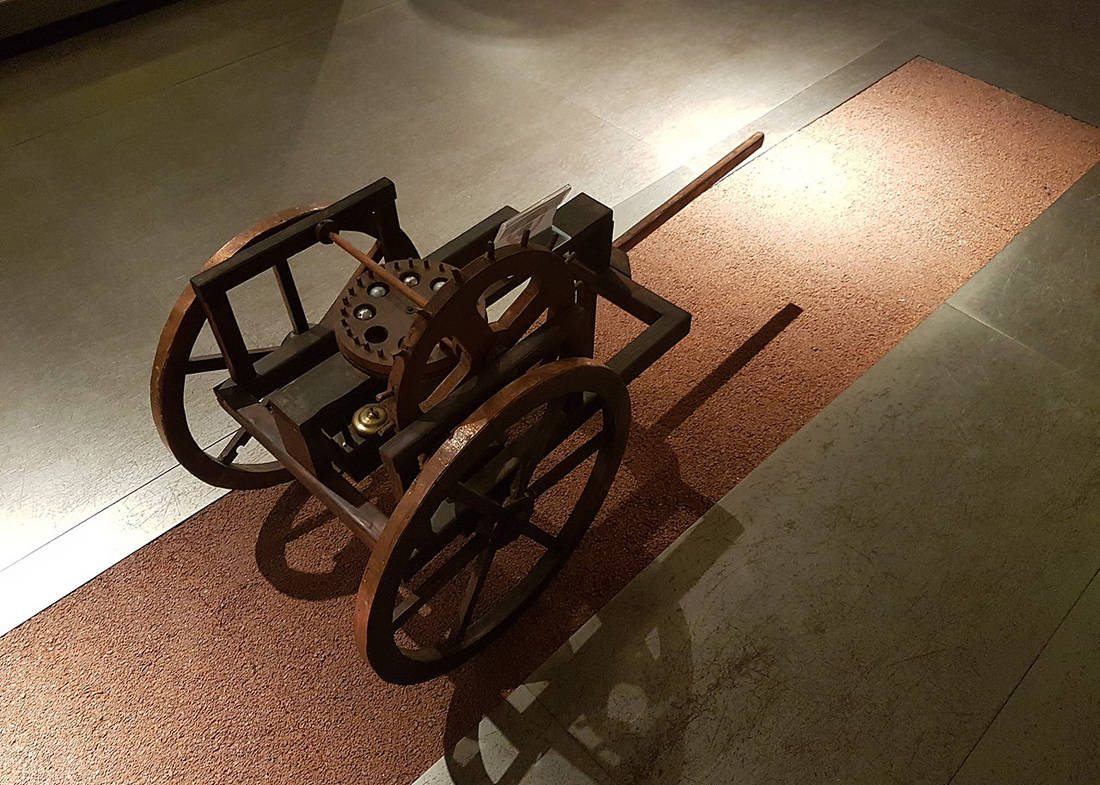
How did our ancient ancestors have such accurate distance measurements? But with the odometer, of course, a box with Archimedes' endless screws (another colossal technological contribution) and cogwheels that fit on a moving vehicle. The device transferred the movement of the wheel to a disk and the calibrated drums on its surface showed the distance marked.
Greek Strabo and Roman Pliny are impressed by the accuracy of the measurements made by the pacemakers of Alexander the Great, Vaiton and Diogenes, during his campaign in the East. Excellent accuracy, however, indicates the use of a mechanical device, historians say today, wanting to explain how it was possible that they had a deviation of 0,2%!
It is not excluded that the multi-machine of Greek science, Archimedes, was again the inventor, as Heron Alexandreus suggests in "Peri dioptras", where he describes the odometer and its variant for water, the naval odometer.
However, the Antikythera Mechanism also included an odometer, so its use must have been generalized in Greece.
They got it ready Romans, as confirmed by the Roman architect and engineer Vitruvius in 27-23 BC, and they calculated with great accuracy the distances of the cities to their vast empire…
In conclusion, the mechanical, technological and technical contributions of the Greeks are not limited in any way here. Our ancestors made alarm clocks, computer devices, showers and plumbing, automatic doors, maps, arched bridges, lighthouses, locomotives, spiral staircases, central heating, vending machines, clocks with clocks, machine tools, view machines , tools, even robots!
It would be fun to live in ancient Greece…
